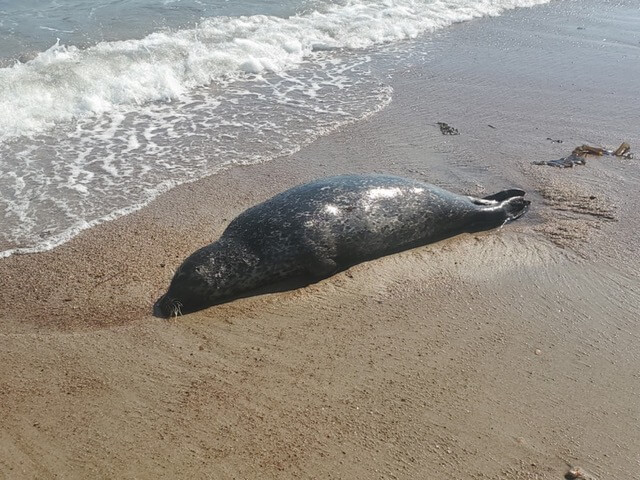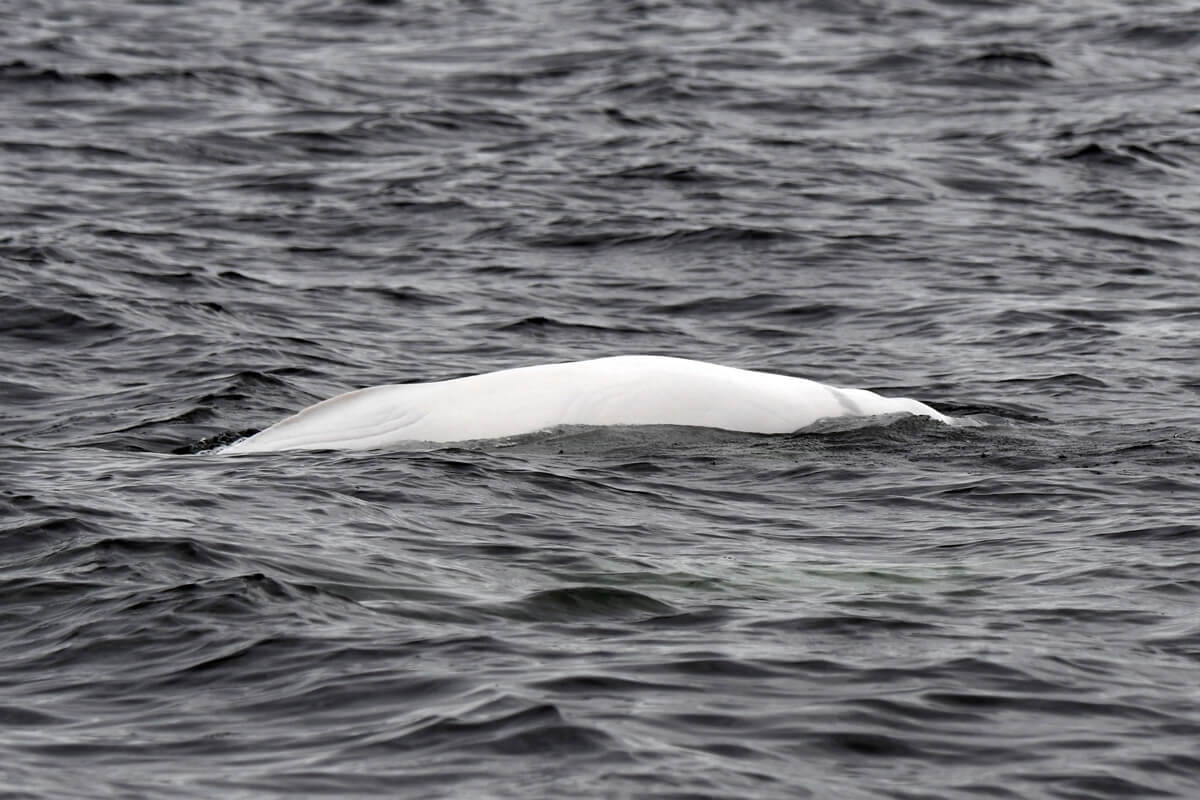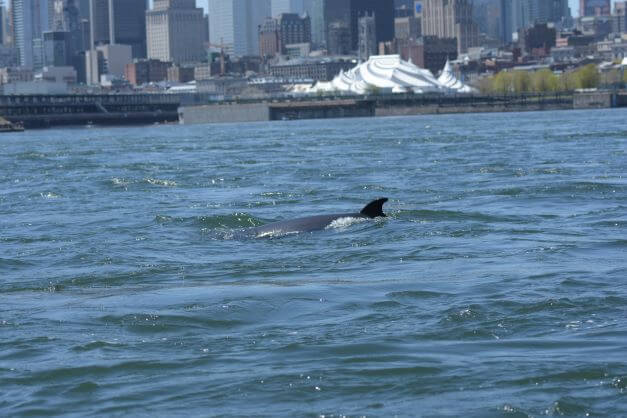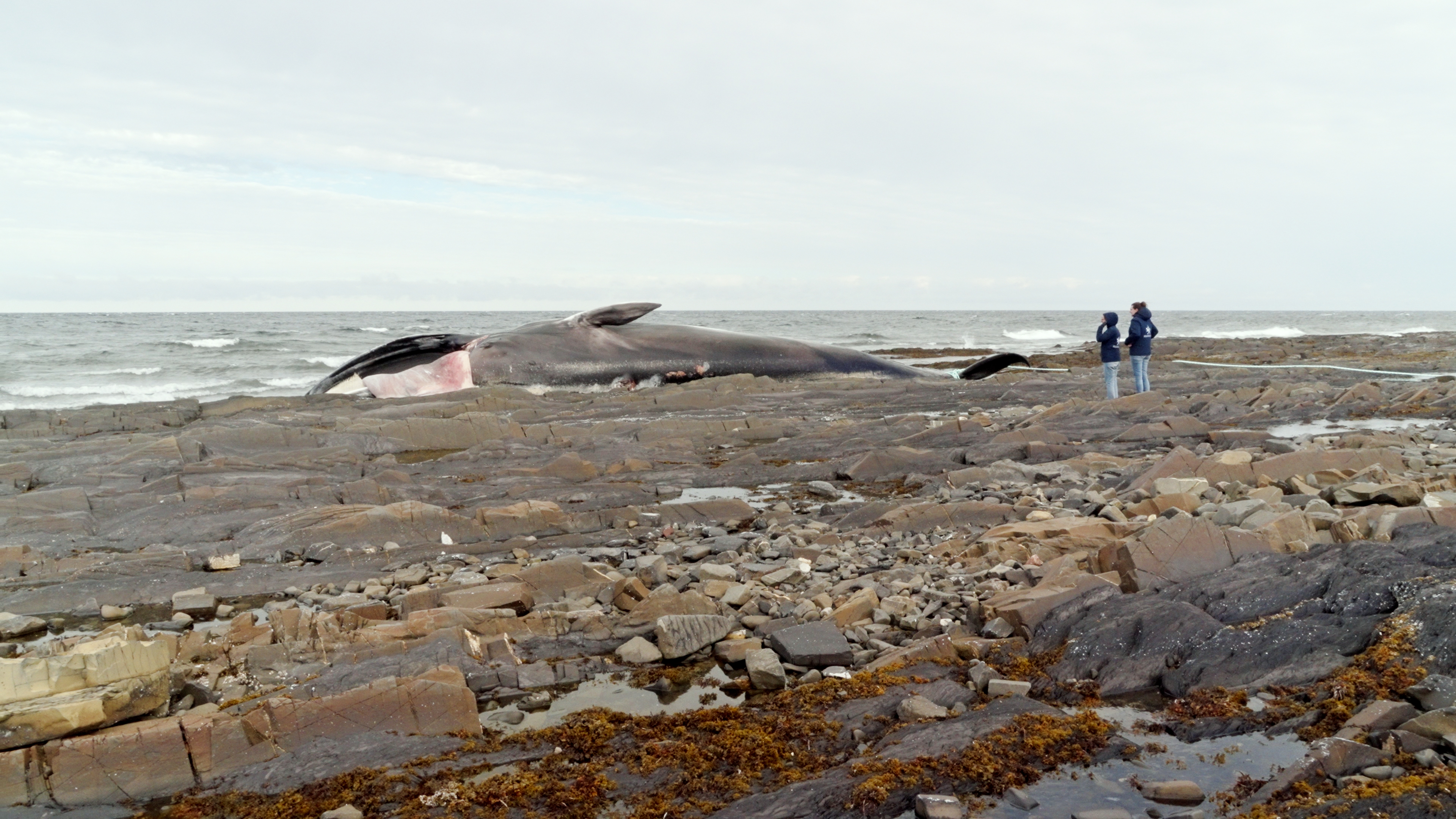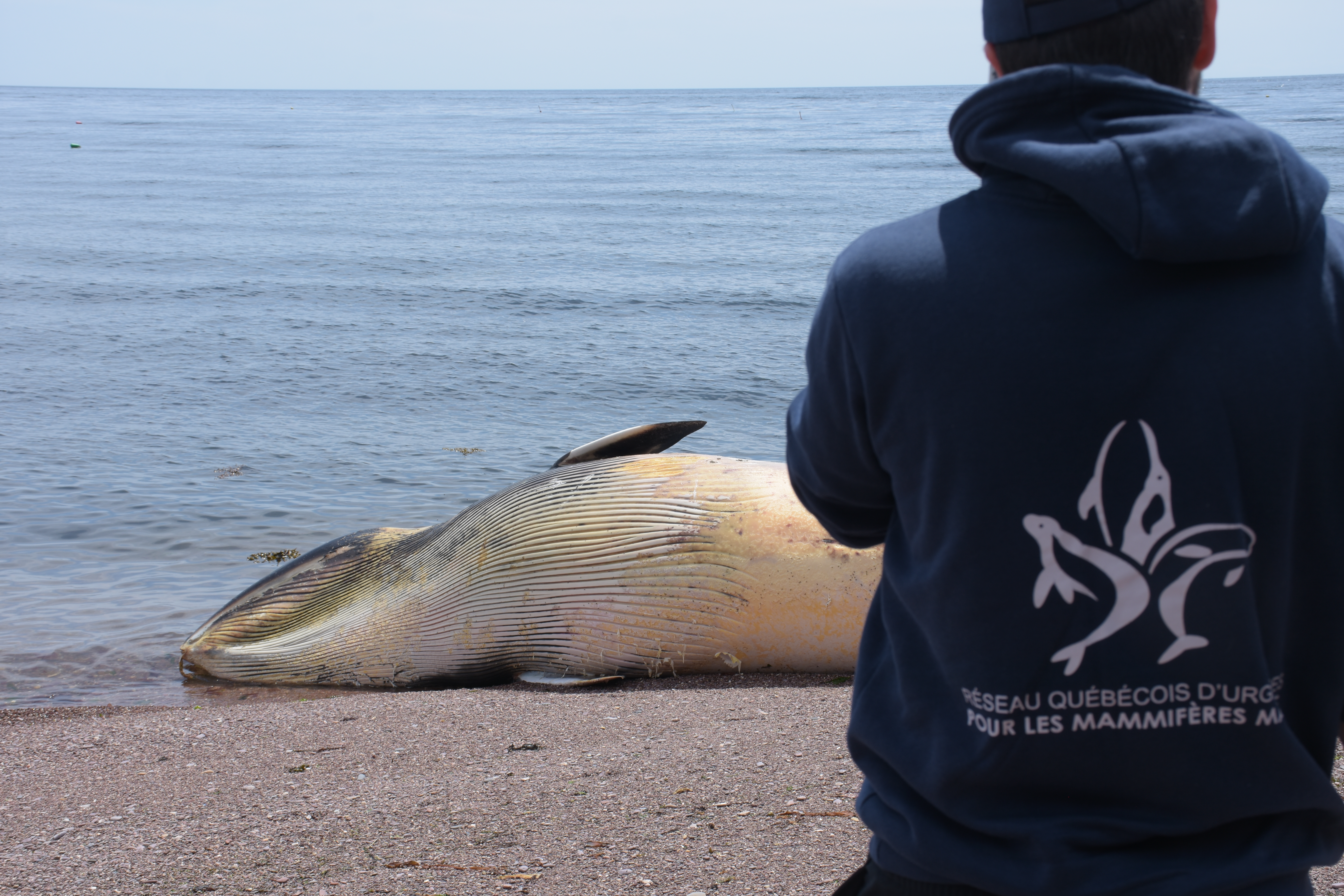Seal pups harassed on the beaches, discovery of pinniped carcasses along the shores, vagrant minke whales in Montréal: these are just a few of the cases that kept the Quebec Marine Mammal Emergency Response Network (QMMERN) busy this spring. Whales Online takes stock.
Harassment and carcasses
The harbour seal pupping season is often a busy period for the network. Between May and June, local residents and visitors to the region are often concerned when they observe a young seal alone on the beach. The QMMERN has therefore been receiving a large volume of calls. Sometimes these are from citizens worried about seeing an animal all alone, or reports of seals being harassed by well-meaning passers-by.
Yet most of the time, these young pinnipeds do not need any help.. One should keep a distance of at least 50 metres from the seals and contact the Network at 1-877-722-5346 if the animal is injured or in a place that interferes with human activities.
In addition to helping live animals, the Network is also responsible for documenting marine mammal carcasses. When carcasses are reported, volunteers or team members travel to the scene to document the situation and collect data on the individual as well as to understand the causes of the standings. One of the network’s role is thus to act as a watchdog and monitor all the elements likely to affect marine mammals.
Between January 1 and June 15, 2022, some fifty seal carcasses were identified by the QMMERN. To understand this abnormally high mortality, samples were taken from individuals that had recently become stranded. One of the hypotheses being considered is that the avian flu epidemic currently affecting seabirds in the St. Lawrence might also be having an impact on seals. However, no analysis has thus far been able to confirm this hypothesis.
What about belugas?
Four beluga carcasses were also reported and examined this spring. Some of them were even brought to the Faculty of Veterinary Medicine of Saint-Hyacinthe to undergo a necropsy in the hope of gaining further insight into the causes of the animal’s death. If you happen to find a marine mammal carcass, you should contact the Quebec Marine Mammal Emergency Response Network at 1-877-722-5346. Above all, do not touch it due to the risk of contracting a zoonosis, a type of disease that can be transmitted from animals to humans.
Montréal hosts minke whales
Impossible to look back on the spring of 2022 without mentioning the unusual discovery of two minke whales in Montréal waters in May . These animals struck a sensitive chord in many a citizen and raised a number of questions . The presence of these two cetaceans resulted in a great deal of work for the Network, whether it be to develop a response and monitoring plan, collect information on the individuals’ respective conditions, or track the overall situation.
On May 26, a minke whale carcass was observed in Contrecoeur. The following day, it was towed and transported to Saint-Hyacinthe, where Dr. Stéphane Lair was able to perform a necropsy. Although it could not be identified with certainty, there’s a good chance that it was one of the two individuals from Montréal. This past spring, a total of four minke whale carcasses were found. Even if we do not know what prompted the two individuals from Montréal to venture up the St. Lawrence River, they have certainly contributed to raising public awareness of marine mammals.


